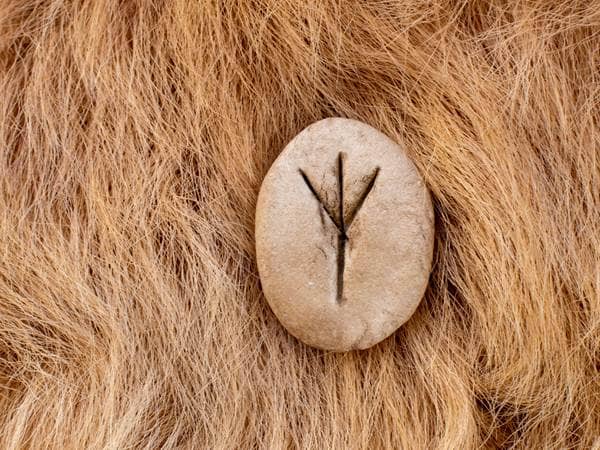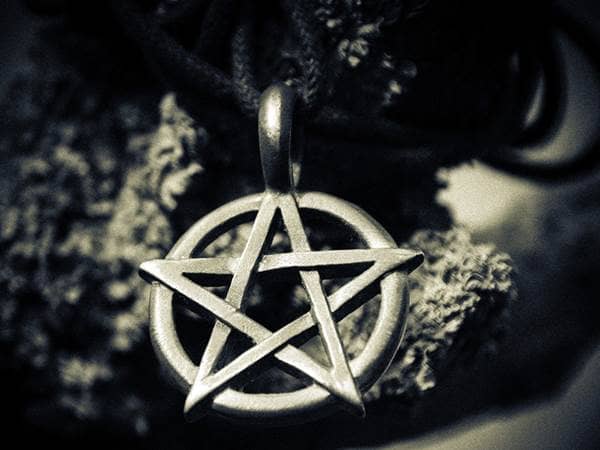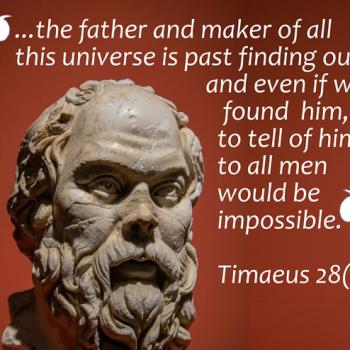
The most ancient surviving reference to the commemoration of a birthday dates from around 3,000 BCE. It was the occasion of the coronation of an Egyptian pharaoh and, thus, a celebration of his “birth” into godhood. Not a typical birthday, to be sure. Nonetheless, it evidences that birthdays originally had some pagan origins and were, in their beginning, a religious commemoration.
Like the Egyptians (and probably because of them), the ancient Greeks also commemorated birthdays; and for religious reasons as well. Many ancients believed that, on important life events or during significant changes in one’s life, evil spirits might threaten the person whose life was in transition. Birthdays were one of those occasions of “risk.” Thus, the pagan Greeks often made offerings to their many gods as a means of gaining favors, protection, and in order to appease the divine powers in the universe.
One such gift to the gods was cake, often offered to Artemis—the goddess of nature and hunting—in the hopes of success during the hunt (among other things). As with Taoism, where it is believed that bonfires can scare away the kuei (sometimes perceived as bad spirits), there are those who believe that the ancient Greeks added candles to their cake offerings as a means of provoking protection. Hence the birth of a very common birthday tradition—the “birthday cake” with candles.
While the details can be debated, and not all agree on the degree to which specific popular practices have come down to us from ancient pagan observances, there seems to be little debate regarding the fact that the earliest celebration of birthdays is found in ancient paganism. And yet, the definite connections have caused some (mostly in Islam and Jehovah’s Witness tradition) to question whether one should celebrate birthdays at all.
Origen of Alexandria (circa AD 185-253) appears to be the singular early Christian critic of birthdays. He made the following observation: “And on birthdays, when the lawless world reigns over them, they dance so that their movements please that world. Some [have] observed what is written in Genesis about the birthday of Pharaoh, and [have noted] that the worthless man who loves things connected with birth keeps birthday festivals; and we…find in no Scripture that a birthday was kept by a righteous man. For Herod was more unjust than that famous Pharaoh; for by the latter on his birthday feast a chief baker is killed; but by the former, John” the Baptist is slain.
Thus, by the third century, at least one Church Father had some concerns about the commemoration of birthdays. One Jehovah’s Witness text points out: “Birthday celebrations were also held in honor of pagan deities… Hence, birthday celebrations were associated with paganism, not with Christianity.” [See What Does the Bible Really Teach? (2006), 157.] That being said, for many of Jehovah’s Witnesses, the concern is less about the “pagan connections” and more about “honoring” a mortal (as birthdays do) when one should reserve all honor for God.
Similarly, in Islam, some do celebrate birthdays. However, there is specific question about the propriety of doing so if one is a faithful Muslim. Many point out that the Prophet Muhammed (PBUH) didn’t celebrate his birthday. Other Muslims express concern about the obvious pagan connections at the heart of celebrating birthdays—and then note that the Qur’an forbids engaging in any pagan practices or religious observances.
Thus, by default, this is seen as a condemnation of birthday commemorations (because they are rooted in pagan culture and religion). Other Muslims will say, if it isn’t a “religious celebration,” then it is divorced from paganism and is okay to commemorate. However, the Ulema or Muftis (i.e., the scholars of Islamic law) pretty consistently question the proprietary of participation in any birthday celebration.
All that being said, it is worth noting that many traditions common in Westering culture have been drawn from pagan practices. For example, wedding rings find their origins in paganism. However, since the various Abrahamic traditions have turned these tokens of affection into symbols for a bride and grooms love for each other, their commitment to their marriage, or their covenant relationship, neither Jews, Christians, or Muslims see wedding rings as innately pagan or wrong.
Thus, whether it be the commemoration of a birthday, the lighting of a birthday cake’s candles, the giving of gifts, or the celebration of a person’s life, each of these things can be said to have pagan roots; and yet, if they are interpreted in completely non-pagan ways, one has to ask whether they remain pagan for the person who practices them. For most, the answer will be a resounding “No!”
5/10/2024 5:30:30 PM
















